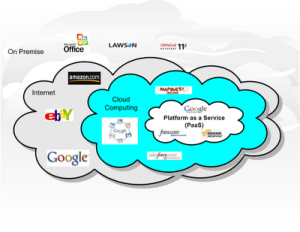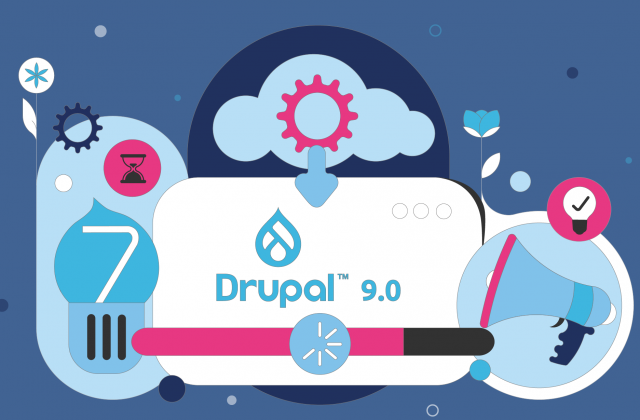Cloud computing is definitely here to stay. As web accesibility improves on a nearly daily basis so too does the potential for cloud computing concepts to be applied to more areas of corporate IT and provide new business solutions. As companies rush to capitalise on the new options available to them, the question is; what can cloud computing do for small business? And what does the longer term picture look like?

(Broadly speaking, the term refers to the transfer of application running and data storage processes away from individually owned client computers to centrally run and maintained systems, which are then accessed by users/clients/businesses on a pay-per-use basis via the web. For a more detailed description see the Wikipedia link at the start of this article).
To start with the obvious, small businesses now have access to powerful and effective IT solutions without requiring their own extensive hardware, staff training or implementation expertise. They need only the basic skills required to access the and use the software, but need know nothing of how it functions or is maintained. Hence skill-based barriers to entry are massively lowered.
Moreover, when updated software versions become available small business can stay up to date without incurring upgrade costs at their end. Patches and bug fixes are installed centrally, so that users don’t have to individually update their software.
As newer and more advanced services are developed and made available, the increased hardware demands made by them will not exert pressure on the client’s in-house systems but only on the service provider’s own host systems. Long term IT hardware spend is thereby significantly cut.
In short, cloud computing can provide the following for small businesses:
1. allow access to effective IT solutions on a pay-per-use basis – (Cost-efficiency).
2. negate the need for extensive IT training and expertise – (Support/cost-efficiency)
3. negate concerns over hardware and software updating – (Long term stability and IT planning).
4. grant small organisations freedom; service providers can be changed to suit evolving business needs, without subsequent costs being incurred by abandoning old paid-for software – (Flexibility).
All this sounds pretty fantastic for small businesses, and is exactly the reason why thousands of businesses worldwide are turning to cloud computing solutions to help them function in the modern business climate – whether its with basics like Google docs, or more complex SAAS utilities such as some Amazon Web Services packages.
The advent of wireless broadband, smartphones, free urban wi-fi networks and other new technologies means that the infrastructure required to succesfully utilise cloud computing in business is ever improving on a daily basis. Small companies with only a handful of employees and computers can now have cost effective IT solutions that previously were the preserve of only multinational behemoths with multi-million dollar turnovers and in-house IT departments.
The issue of empowerment is undeniable. But what about the question of dependence and control?
Previously a business using certain software packages to function would buy a license to use the software, after which control of the software would be transferred from the supplier to the client. Updates might be made available etc – but ultimately the product has been bought and is now righfully the client’s to use in any quantity or capacity they desired (subject to end-user agreements and laws).
With cloud computing this issue is slightly more complex. Specifically, it is that many cloud computing services are free for small scale users and new users (ideal for small businesses), but as use increases (as it hopefully would if a business enjoyed success and growth) then eventually fees are either introduced or increased, complicating the business model.
Businesses might find profit margins eaten into as the cloud computing service that facilitated their growth now costs far more than it used to (many Google apps for example are initially free but then become paid-for services when use rises above a certain level).
It is for this reason that the biggest multinational companies will always tend to prefer their own in-house IT departments (which also allow them to maintain high levels of data security), rather than adopting cloud computing options. Their size and financial might affords them the choice.
This is all fair enough, and certainly does not negate the great opportunities for small business provided by cloud computing. However, it does represent a potential concern that previous solutions did not incur.
The fundamental point is that cloud computing is enabling access to a multitude of previously inaccesible services and software solutions for small businesses by lowering the barriers to entry on all fronts. Larger corporations will inevitably be reluctant (it is nothing new for them – plus they can afford the older model of IT provision), but for smaller business the newfound access to cutting edge IT services represents a mini business revolution with infinite opportunities for new development and growth.
Dejan Levi


